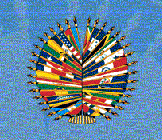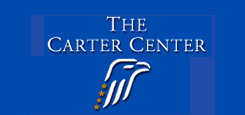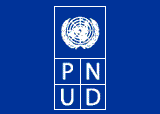CNN
Saturday, November 9, 2002
Venezuela begins talks to avert violent upheaval
EL HATILLO, Venezuela (AP) -- Opponents and supporters of President Hugo Chavez
emerged from talks aimed at easing a growing political crisis acknowledging that
an agreement on early balloting was still far off.
"We are convinced a process of dialogue requires time," Vice President Jose
Vicente Rangel said Friday after a five-hour meeting with opposition leaders and
Cesar Gaviria, secretary-general of the Organization of American States.
Gaviria is trying to broker an end to a bitter political stalemate threatening
to destabilize this South American country, the world's fifth largest oil
exporter.
Chavez's opponents want a referendum on his rule, arguing he has mismanaged the
economy and his fiery rhetoric has split the country along class lines. Even
though the referendum would be non-binding, they believe it could embarrass
Chavez into calling early elections.
Chavez claims the proposed plebiscite is illegal since the constitution says a
referendum can only be held halfway into his six-year term, or next August.
Both his allies and adversaries said Friday that more time will be needed before
a final deal acceptable to both sides can be hammered out, but some progress has
been made.
The rivals have agreed to strengthen the electoral system, disarm the population,
and the create a "truth committee" charged with investigating 19 deaths that
spurred an April 11 coup against Chavez.
However, reaching a deal on the sticking point -- setting a date to hold
nonbinding referendum on Chavez' rule -- is still a long way off.
On Monday, the opposition battled through Chavez supporters in downtown Caracas
to deliver more than 2 million signatures to the National Elections Council
demanding the referendum. Dozens were hurt by gunfire, rocks and tear gas during
the melee.
His opponents argue that rising unemployment, a collapse in the currency and
rampant crime are proof that Chavez is unfit to continue governing and
Venezuelans can't wait until next year for balloting.
But Chavez has shown no intentions of backing down.
If the government continues to rebuke referendum demands "an indefinite strike
is imminent" warned Carlos Ortega, head of the nation's largest trade union,
earlier this week.
If labor and business leaders call a strike it would be the fourth in less than
a year. An April 10 work stoppage provoked a military rebellion in which Chavez
was booted from power and then restored after two days.
Political analysts expressed doubt that Chavez and his adversaries would be able
to hash out their differences at the negotiation table, making a strike the only
alternative left for an increasingly desperate opposition.
"I see the negotiations failing. It's simply a play act by both the opposition
and the government," said Anibal Romero, a political science professor at Simon
Bolivar University.
"The opposition will be forced to call a general strike and simply hope for the
best," added Romero.
http://www.cnn.com/2002/WORLD/americas/11/09/venezuela.talks.ap/index.html


